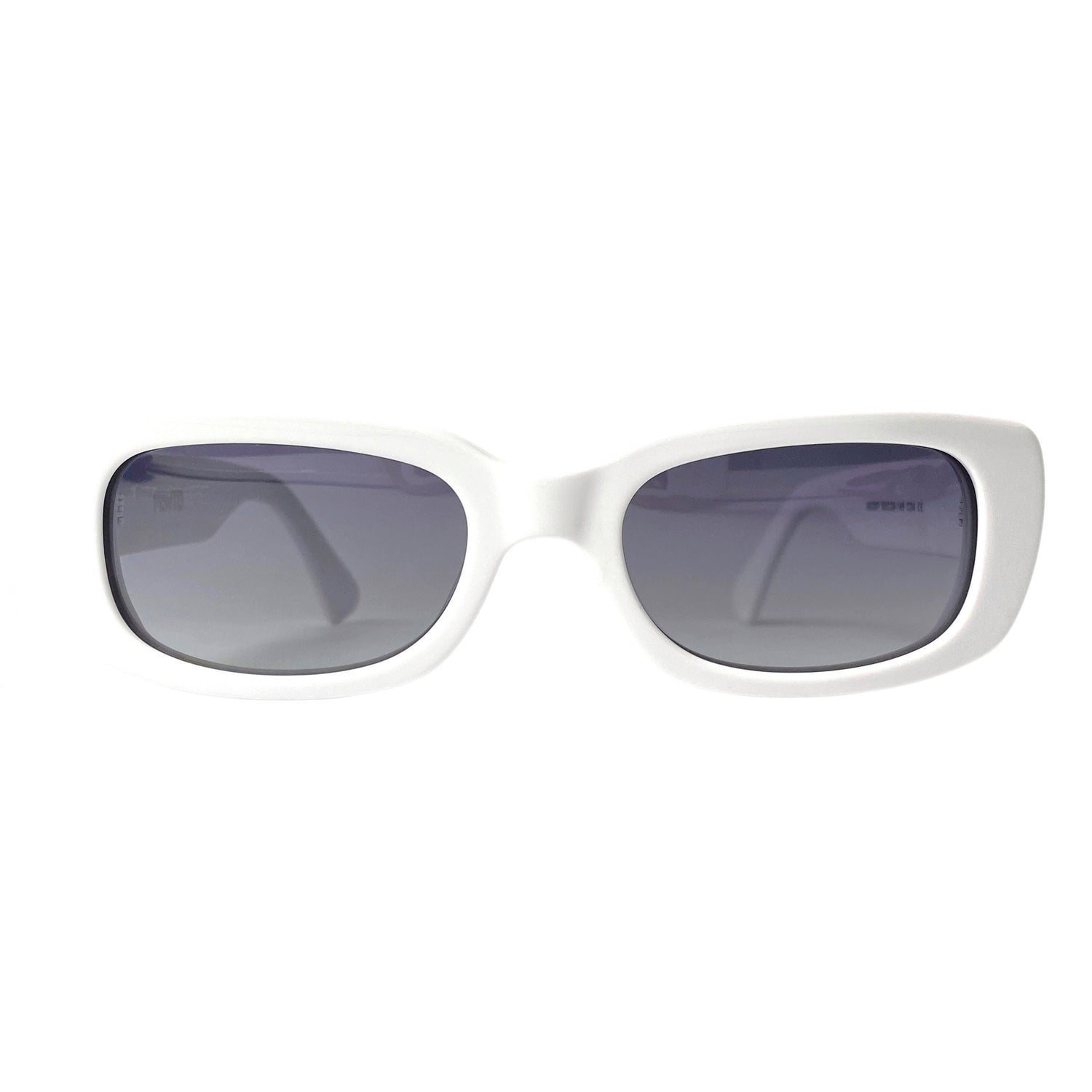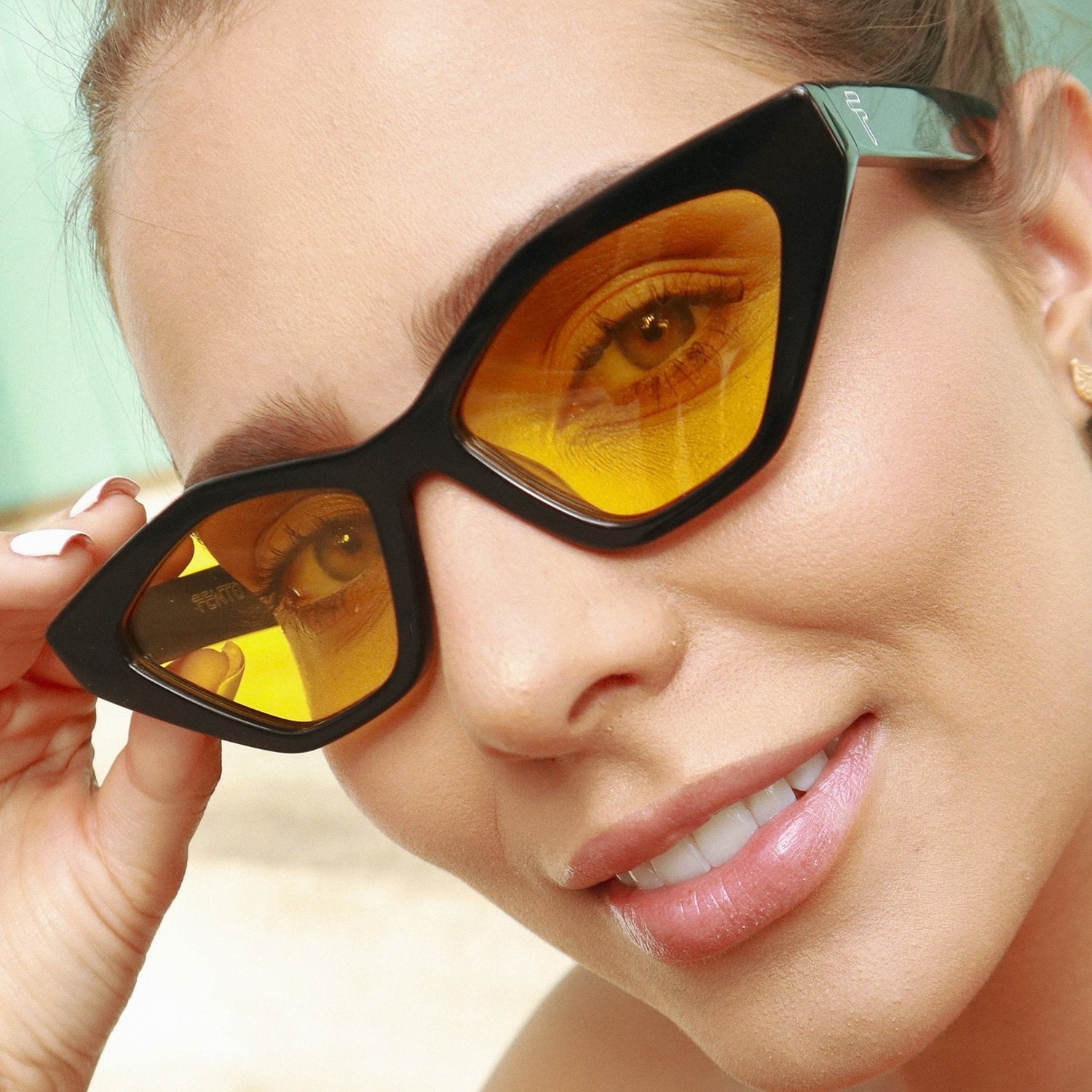
Guide to Buying Everyday Sunglasses
Share
Sunglasses are not just a fashion statement, they are an essential accessory for everyday use. Not only do they enhance your style and give you a cool, confident look, but they also provide much-needed protection for your eyes. In this comprehensive guide, we will delve into the world of everyday sunglasses and help you make an informed decision when it comes to buying the perfect pair.
Understanding the Importance of Everyday Sunglasses
When it comes to protecting your eyes, everyday sunglasses are your best friend. Whether it's a sunny day or a cloudy one, harmful UV rays from the sun have the potential to damage your eyes. That's why investing in a good pair of sunglasses is crucial to maintaining your eye health.
But why are UV rays so harmful to our eyes? Well, let's delve into the science behind it. UV rays are a type of electromagnetic radiation emitted by the sun. There are three types of UV rays: UVA, UVB, and UVC. UVC rays are absorbed by the Earth's atmosphere and don't reach our eyes. However, UVA and UVB rays can penetrate our eyes and cause damage.
Protecting Your Eyes from Harmful UV Rays
Did you know that prolonged exposure to UV rays can increase your risk of developing eye conditions such as cataracts and macular degeneration? Cataracts occur when the lens of the eye becomes cloudy, leading to blurred vision. Macular degeneration, on the other hand, affects the central part of the retina, leading to a loss of vision in the center of your visual field.
That's where everyday sunglasses come to the rescue. Look for sunglasses that offer 100% UV protection. These sunglasses have lenses that block both UVA and UVB rays, providing you with complete eye protection. Additionally, some sunglasses also offer polarization, which reduces glare and enhances visual clarity.
Now, you might be wondering, how do sunglasses protect our eyes from UV rays? Well, it's all in the lens technology. UV-blocking lenses are made with special coatings or materials that absorb or reflect UV rays. This prevents the rays from reaching your eyes and causing damage. So, when you put on your sunglasses, you're not just making a fashion statement, you're also safeguarding your precious eyes.
Enhancing Visual Comfort and Clarity
Aside from protecting your eyes, everyday sunglasses also enhance your visual comfort and clarity. Glare from the sun can strain your eyes and make it difficult to see clearly. Have you ever experienced that squinting feeling when the sun is shining directly into your eyes? It's not only uncomfortable but can also lead to headaches and eye fatigue.
By wearing sunglasses, you can reduce glare, allowing you to see better and avoid eye strain. The lenses in sunglasses are designed to filter out excessive light, especially bright sunlight, and provide a more comfortable viewing experience. Whether you're driving, playing sports, or simply enjoying a walk in the park, sunglasses can make your outdoor activities much more enjoyable.
Moreover, sunglasses can also improve your depth perception and color perception. When your eyes are exposed to bright light, it can be challenging to judge distances accurately. Sunglasses help by reducing the intensity of light, making it easier for your eyes to perceive depth and distances correctly. Additionally, certain lens tints can enhance color contrast, making your surroundings appear more vibrant and vivid.
So, the next time you step out into the sun, don't forget to grab your everyday sunglasses. Not only will they protect your eyes from harmful UV rays, but they will also enhance your visual comfort and clarity. Your eyes deserve the best care, and a good pair of sunglasses is an essential part of that care.
Key Features to Consider When Buying Sunglasses
Now that you understand the importance of everyday sunglasses, it's time to explore the key features you should consider when buying a pair.
When it comes to choosing the perfect sunglasses, there are several factors to take into account. Let's delve deeper into the details to ensure you make an informed decision.
Lens Quality and Material
The lens quality and material play a significant role in the overall performance of your sunglasses. It's not just about style; it's about protecting your eyes from harmful UV rays and ensuring optimal vision.
When searching for the ideal pair, look for lenses made from high-quality materials such as polycarbonate or glass. These materials offer excellent clarity and durability, ensuring that your sunglasses will last for a long time. Polycarbonate lenses, in particular, are known for their impact resistance, making them ideal for those who lead an active lifestyle.
Furthermore, consider the lens quality. Look for sunglasses that provide 100% UV protection to shield your eyes from the sun's harmful rays. This is crucial in preventing long-term damage to your eyes and reducing the risk of conditions such as cataracts or macular degeneration.
Frame Size and Shape
The frame size and shape not only affect the aesthetics of your sunglasses but also determine how well they fit your face. It's essential to choose a frame size that is proportionate to your face and matches your personal style.
When selecting sunglasses, take into account the width of your face. If you have a narrower face, opt for smaller frames that won't overwhelm your features. On the other hand, if you have a wider face, larger frames can help create a balanced look.
Additionally, consider the shape of your face when selecting sunglasses. Different face shapes require different frame styles to ensure a flattering fit. For example, if you have a round face, angular frames can add definition and structure. Conversely, if you have a square face, rounded frames can soften your features.
Remember, finding the perfect frame size and shape not only enhances your appearance but also ensures that your sunglasses sit comfortably on your face, providing optimal protection and reducing the risk of discomfort during extended wear.
Polarisation and Lens Colour
Another crucial feature to consider is polarisation. Polarised lenses reduce glare significantly, making them perfect for outdoor activities such as driving or spending time near the water. Glare from reflective surfaces can be not only annoying but also potentially dangerous, as it can impair your vision. Polarised sunglasses help eliminate this glare, providing you with clear and comfortable vision.
When it comes to lens colour, it's not just about personal preference; it can also affect how you perceive colours and contrast. Different lens colours have different benefits, so choose one that suits your preferences and provides excellent visibility in specific environments.
For instance, grey lenses offer natural colour perception and are suitable for everyday use. Brown lenses enhance contrast and depth perception, making them ideal for activities such as hiking or skiing. Green lenses provide excellent clarity and are perfect for golfing or other outdoor sports.
Ultimately, the choice of lens colour depends on your lifestyle and the activities you engage in regularly. Consider the environments you will be in and select a lens colour that optimises your visual experience.
By considering these key features when buying sunglasses, you can ensure that you not only look stylish but also protect your eyes and enjoy optimal vision in various settings. Take the time to find the perfect pair that suits your needs and personal style, and enjoy the benefits of wearing high-quality sunglasses.
Decoding the Sunglasses Jargon
The world of sunglasses is filled with jargon that can be confusing for buyers. Let's shed some light on the key terms and concepts you need to know.
What is UV Protection?
UV protection refers to the ability of sunglasses to block harmful UV rays from reaching your eyes. Look for sunglasses that offer 100% UV protection to ensure that your eyes are shielded from these damaging rays.
The Difference Between Polarised and Non-Polarised Lenses
Polarised lenses have a special filter that blocks horizontal light, reducing glare and providing better visibility. On the other hand, non-polarised lenses do not have this filter, making them suitable for indoor use or situations where glare is not a concern.
How to Choose Sunglasses that Suit Your Face Shape
The right sunglasses can complement your face shape and enhance your overall appearance. Let's explore how you can determine your face shape and find the best sunglasses for your unique features.
Identifying Your Face Shape
To identify your face shape, stand in front of a mirror and determine the widest part of your face, as well as the overall shape of your face. The most common face shapes include round, oval, square, heart-shaped, and diamond-shaped.
Best Sunglasses for Different Face Shapes
- Round face: Opt for angular frames to add definition to your facial features.
- Oval face: Lucky you! Almost any frame shape will suit your face shape. Go for frames that are as wide as the broadest part of your face.
- Square face: Choose round or oval frames to soften the angles of your face and create a balanced look.
- Heart-shaped face: Look for frames with wider bottoms to balance out your forehead and narrower chin.
- Diamond-shaped face: Try cat-eye or oval frames to highlight your cheekbones and soften the angles of your face.
Maintaining Your Everyday Sunglasses
Once you've found the perfect pair of everyday sunglasses, it's essential to take proper care of them to ensure their longevity.
Cleaning and Storing Your Sunglasses
To clean your sunglasses, use a lens cleaner or mild soap and warm water. Avoid using abrasive materials that can scratch the lenses. When not in use, store your sunglasses in a protective case to prevent them from getting damaged or scratched.
When to Replace Your Sunglasses
Over time, sunglasses can become worn out or damaged. If you notice any cracks in the frame or scratches on the lenses that affect your vision, it's time to replace your sunglasses. Additionally, if your prescription changes, consult with an optician to ensure that your sunglasses provide the necessary vision correction.
By following this comprehensive guide, you will be well-equipped to make an informed decision when buying everyday sunglasses. Remember to prioritize UV protection, consider your face shape, and maintain your sunglasses properly. Happy shopping!








